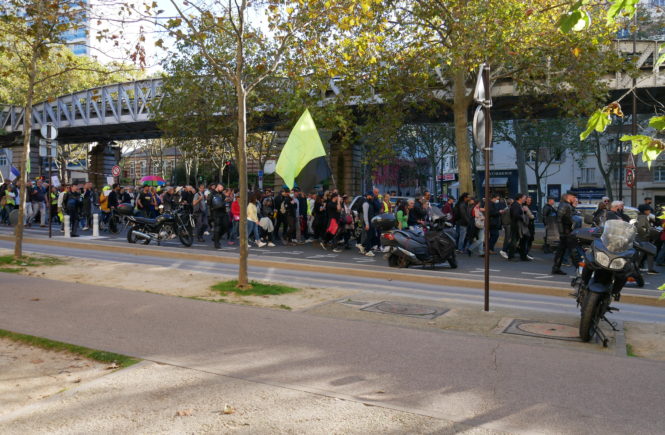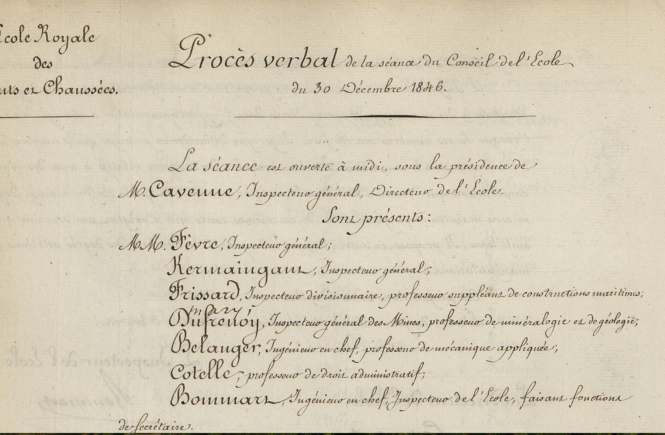, The Tyranny of Socialism, ed. J.H. Levy (London: Swan Sonnenschein and Co., 1894).
CHAPTER II. THE CAUSES OF STRIKES.
The Miner by Birth and the Miner by Adoption—Navvies and the Scale of Prices—The Anzin Strike of 1884—M. Basly’s Confession—The Hatters—Pretensions of the Syndicates—Strikes Caused by Minorities.
In a dry enumeration one cannot take into account the true causes of strikes, their justification, or the proportion between the risk to be run and the result to be obtained. We can only state certain facts, upon which we can base a rough estimate as to the psychology of strikes.
At Anzin, in 1878, the workmen had no grievance to make known, and formulated no definite claims. In my conversations with a large number of the men, I could only get hold of one clear idea: the miners by birth complained of the competition caused by the miners by adoption, “who came and undersold the trade.”
When, in May, 1880, a strike broke out at Roubaix, the difficulty was to find out what the strikers wanted.
In the month of August, 1882, the Paris carpenters struck, not on the question of wages, for here is the progress which they had made—1877, 60; 1879, 70; 1882, 80 centimes per hour; but they demanded a reduction of the hours of labour and the abolition of sub contracting.
We have mentioned the schedules of charges which the Municipal Council claimed to impose upon the contractors for the public works in the city of Paris, establishing a maximum number of hours of work and a minimum wage. One fine morning in 1888, in two neighbouring streets, some navvies found themselves working under different conditions; one gang was working under the regulations of the old schedule of charges, and the other under the new. The former did not understand this difference; neither did they understand why they should earn less than their companions. When some municipal councillors tried to explain it to them, they struck.
When the Anzin strike broke out in 1884, abolition of sub-contracting was demanded, and, above all, a new method of working was protested against. M. Basly declared,1 in his deposition made before the delegation of the Commission, that “if the Anzin workmen had known the actual methods of working, the strike would not have broken out.”
When miners are out on strike they raise the question of the administration of pension funds and relief funds. This permanent demand rarely suffices to cause a strike; but it always appears as one of the chief of the alleged grievances. Often, when a company has believed itself to be moved by the best intentions, its intentions have been distorted or taken in bad part.
Strikers have again and again called for the founding of co-operative societies of consumers. This was the case, in 1882, at Bessèges, at Anzin in 1884, and at Decazeville in 1886.
In 1881, the Hatters’ Mutual Aid Society, which, as it itself recognised, was a syndicate of resistance, insisted upon a strike under conditions which show how far the idea of the power of syndicates and the contempt for the freedom of labour can go, in the opinion of some of their members.
The firm of Crespin, Laville & Co. had two places of business, one in the Rue Vitruve, the other in the Rue Simon-le-Franc. It paid the workmen at the latter house according to the society scale, and the former at a lower rate. The society ordered the latter to go out on strike. They obeyed. It then ordered the workmen in the Rue Simon-le-Franc to go out on strike in their turn. Some submitted; others protested, saying:—We are working according to the society scale. We are in order. We have no reason for striking. You cannot demand it of us.—We shall expel you,” was the reply.—And our subscriptions to the pension fund, etc.?—They will be lost.”
A general meeting was convened, and under menaces, the workmen in Rue Simon-le-Franc were forced to go out on strike!
Many of the more recent strikes have been caused by the claims of the syndicates to impose their authority in workshops and factories, so as to prevent the employment of men not belonging to a syndicate. In the month of January, 1893, this claim not only caused a strike in the Marrel Works, but, on the plea of solidarity, the workmen in other factories, those of Brunon, Arbel, Deflassieux, Lacombe, the Marine Steel Works, etc., deserted their work without either proclaiming any grievance, or formulating any demands. A strike is declared; but by whom? Is it unanimous? Not at all. It is more often a minority which determines it. If it meets with opposition, its leaders have recourse to intimidation, insults, threats, and even blows. At Bessèges, in March, 1882, two or three hundred people struck. 5500 workmen wanted to work, but ended by giving in.
On November 25th, 1889, in the Chamber of Deputies, I pointed out that, on November 7th, at l’Escarpelle, a spontaneous gathering of workmen had opposed the strike. Unhappily, this was an isolated case of courage in the history of strikes.
On November 19th, 1891, I told the Chamber of Deputies, without the possibility of having my statements disputed, that the miners’ strike in the Pas-de-Calais was declared after a vote, in which the voters were divided as follows:—13,000 for, 7,000 against, 10,000 abstentions. And a general strike was proclaimed.
Delegates were forthwith nominated to draw up claims that night, ex post facto, justifying it.


